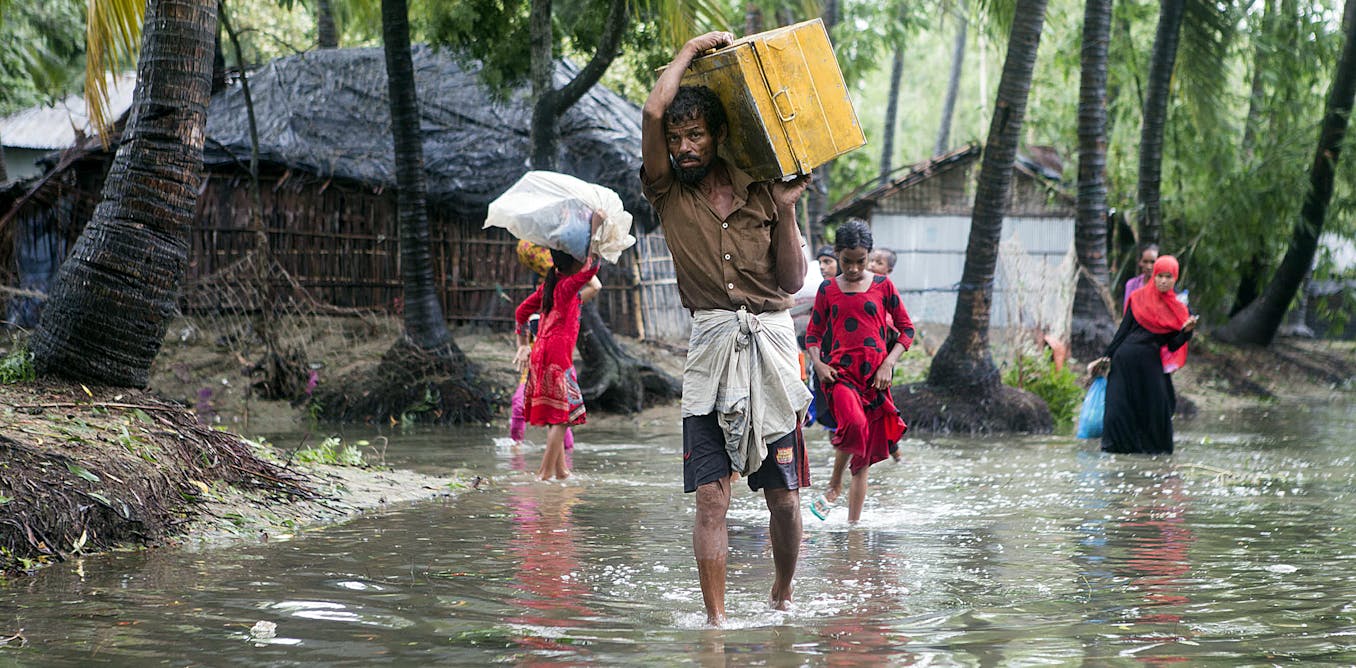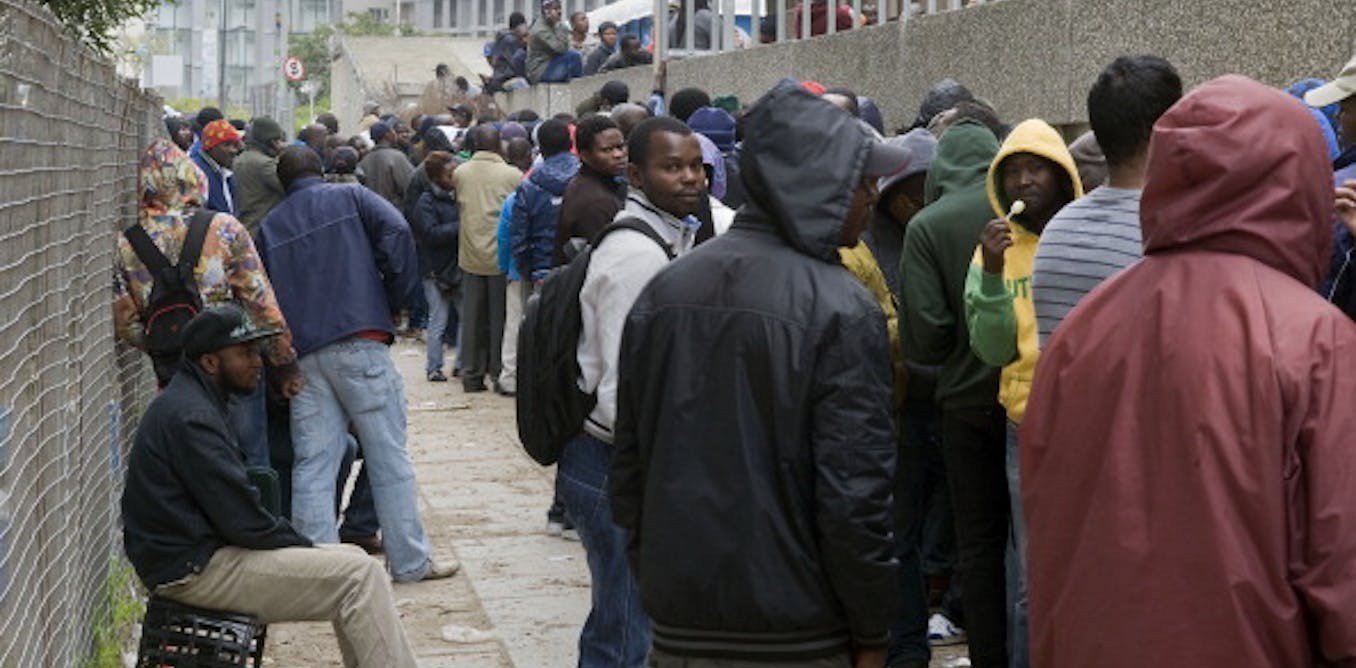   
CEO Picks - The best that international journalism has to offer!
 S41 S41 S1 S1
 S2 S2Data Scientist: The Sexiest Job of the 21st Century   Back in the 1990s, computer engineer and Wall Street “quant” were the hot occupations in business. Today data scientists are the hires firms are competing to make. As companies wrestle with unprecedented volumes and types of information, demand for these experts has raced well ahead of supply. Indeed, Greylock Partners, the VC firm that backed Facebook and LinkedIn, is so worried about the shortage of data scientists that it has a recruiting team dedicated to channeling them to the businesses in its portfolio.
Continued here
|
 S3 S3What It Takes to Give a Great Presentation   Never underestimate the power of great communication. It can help you land the job of your dreams, attract investors to back your idea, or elevate your stature within your organization. But while there are plenty of good speakers in the world, you can set yourself apart out by being the person who can deliver something great over and over. Here are a few tips for business professionals who want to move from being good speakers to great ones: be concise (the fewer words, the better); never use bullet points (photos and images paired together are more memorable); don’t underestimate the power of your voice (raise and lower it for emphasis); give your audience something extra (unexpected moments will grab their attention); rehearse (the best speakers are the best because they practice — a lot).
Continued here
|
 S4 S4Jimmy Red corn grits with egg yolks   At Audrey, chef Sean Brock's Appalachia-inspired restaurant in Nashville, Tennessee, diners enjoy Jimmy Red grits, a porridge made from dried, stone-ground corn, topped with a sorghum-cured egg yolk and bay laurel (also known as sweet bay). This is a dish that would have been impossible to make 15 years ago.That's because Jimmy Red, the coveted heirloom corn variety from which the grits are made, was in danger of going the way of the woolly mammoth until Brock stepped in to help save it. The deep red "dent" corn, named for the dent on each corn kernel, likely made its way from the Appalachian Mountains to South Carolina's James Island around 1900, where it was prized by bootleggers who distilled it into moonshine (illegal whiskey). In the early 2000s, the sole remaining bootlegger growing the corn died, and the corn almost died, too.
Continued here
|
 S5 S5Doctor Who: Who is the greatest Doctor of all?   Today, Doctor Who celebrates its 60th birthday – a truly astonishing achievement for a TV series. And in that time, no less than 13 actors have played the time-travelling Doctor, with Ncuti Gatwa set to become the 14th when he takes over at Christmas (although he will officially be known as the Fifteenth Doctor, as one actor, David Tennant, has now played two separate incarnations of the Doctor).In honour of this great day, we decided to ask a selection of Doctor Who experts a very tricky question: who is the greatest Doctor of them all? Here were their answers, which make for perfect fuel for continuing the debate in your own home.
Continued here
|
 S6 S6Napoleon and Josephine: Was their great love affair a myth?   The relationship between Napoleon and the woman he called "Josephine" is central to the plot of Ridley Scott's new film about the French Emperor, which is released this week. It portrays Napoleon as someone who, according to Scott: "conquered the world to try to win her [Josephine's] love, and when he couldn't, conquered it to destroy her, and destroyed himself in the process".More like this:- Napoleon review: 'An awe-inspiring achievement' - Was Napoleon really a monster? - Was Kubrick's Napoleon the greatest film never made?
Continued here
|
 S7 S7Brandalism: the environmental activists using spoof adverts to critique rampant consumerism - podcast   Amid the flurry of billboards promoting cut price deals in the run up to Black Friday, some activists have slipped in the odd spoof advert. By subverting public advertising space, they’re risking legal action to try and make serious points about the excesses of consumer culture and the perilous state of the environment. In this episode of The Conversation Weekly podcast, we find out about the subvertising movement and its links to a wider conversation about mass consumerism and the environment.
Continued here
|
 S8 S8Booker prize 2023: why these shortlisted novels represent a 'golden age' of Irish writing  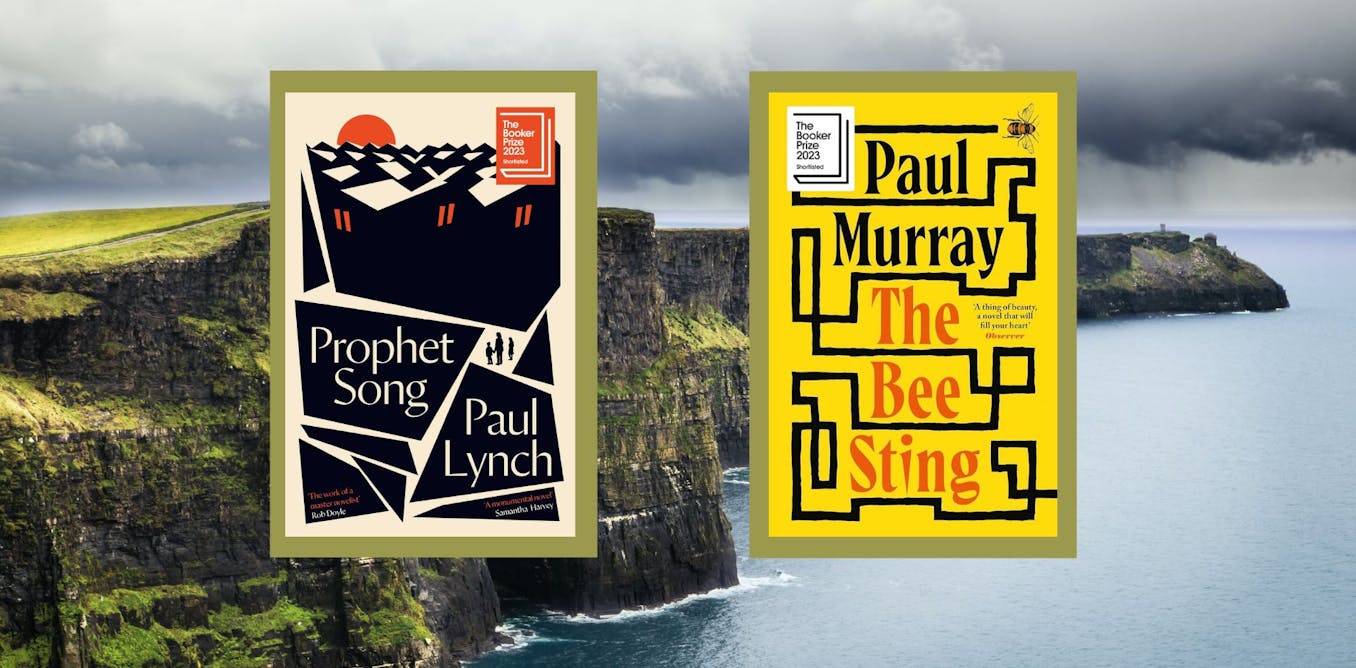 PhD Candidate, Contemporary English Literature and Critical Theory, Trinity College Dublin This year’s Booker prize shortlist is an exciting line up, melding established, prize-winning authors and debut writers. The 2023 shortlist contains two Irish authors – Paul Murray and Paul Lynch – and on the long list of 13 novels, Elaine Feeney’s How to Build a Boat and Sebastian Barry’s Old God’s Time also made the cut.
Continued here
|
 S9 S9
 S10 S10Ukraine war: it may be stalemate on land, but Kyiv's Black Sea success could bring wider benefits this winter  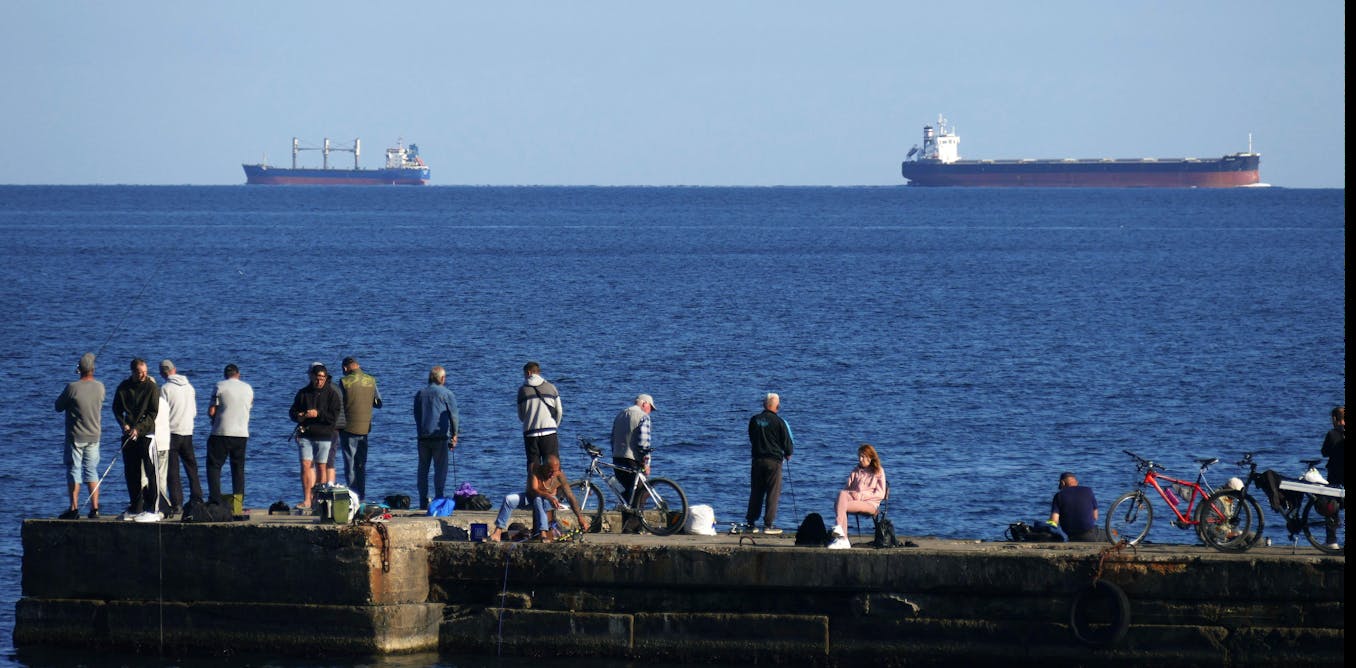 As the attention of the world centres on the war in Gaza, many commentators believe that the war in Ukraine is becoming a stalemate. To date, Ukraine’s highly anticipated summer counteroffensive has not resulted in any substantial territorial gain, and Russia has not made any progress either.In military terms, a stalemate is not necessarily negative, depending on your perspective. It’s a chance to replenish ammunition stocks (for instance, Russia’s limited supply of missiles) or procure new key weapons systems for the next phase of the war (Ukraine’s acquisition of F-16 fighter jets.
Continued here
|
 S11 S11Size of brain area linked with cognitive decline - even in people with no other warning signs of Alzheimer's disease   A small, seahorse-sized area of the brain is responsible for most of our learning and memory. Called the hippocampus, this area is key to many important brain functions, including turning short-term memories into long-term ones, regulating our emotions and making spatial navigation possible – essentially, our ability to plan where to go and how to get there.As we get older, it’s normal for the hippocampus to shrink somewhat. But with certain health conditions, this volume loss is more rapid. Unsurprisingly, Alzheimer’s disease is one of these conditions.
Continued here
|
 S12 S12Kherson one year on: a city bereft of its younger residents and still bombarded by Russian forces across the river   It is a year now since Ukrainian forces liberated Kherson. I knew it before the war as a polyglot and bustling port city (if still determinedly Soviet in feel) sitting largely on the western (right) bank of the mighty Dnipro River. In the first few days of the war, in February 2022, Kherson was seized by Russian forces. It was the largest and strategically most important Ukrainian city to come under Russian occupation. While a major administrative centre itself, Kherson also represented an important gateway for Russian forces in terms of their hoped-for later push towards the vital port city of Odesa, some 150km further to the west.
Continued here
|
 S13 S13 S14 S14Ethiopia's education system is in crisis - now's the time to fix it  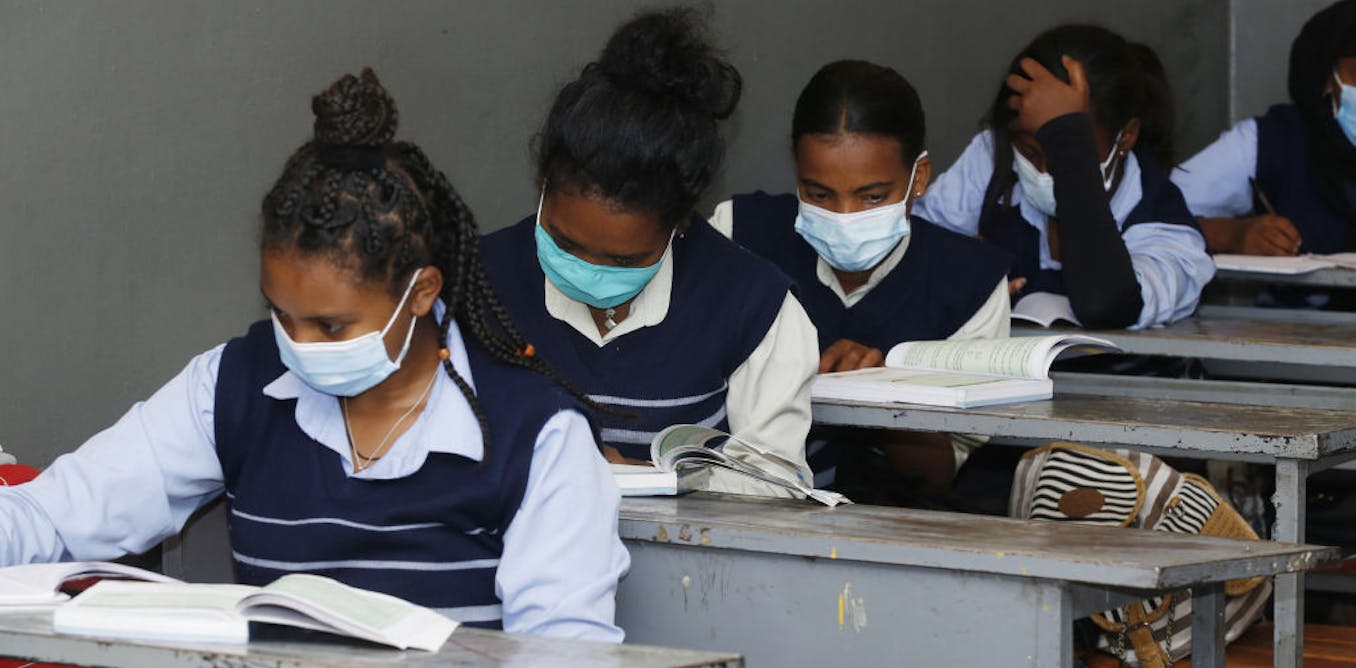 In October 2023, Ethiopia’s minister of education, Berhanu Nega, disclosed several shocking figures on the outcomes of the 12th-grade national examination. Of the 3,106 schools that administered the 12th grade (secondary school leaving) examination for the 2022/23 academic year, 43% reported that none of their students had passed. And, for the second consecutive year, more than 96% of students who participated in the national school leaving examination scored less than the mark (an average of 50%) required to pass. This means that hundreds of thousands of students could not qualify for university education.
Continued here
|
 S15 S15 S16 S16 S17 S17What the autumn statement means for women - three economists explain   This year’s autumn statement was announced by the chancellor, Jeremy Hunt, on Equal Pay Day – the day that UK women stop being paid when compared with men’s wages, due to the gender pay gap. It’s fitting then that the statement included some measures that could help working women – but in other areas, the government still isn’t going far enough.Traditional models of the economy were developed before mass female engagement in the labour market. Newer, more inclusive models better represent women’s experiences in the economy. It’s essential that women’s experiences are considered when setting economic policy to ensure it is fit for purpose.
Continued here
|
 S18 S18What the UK government's back to work plan covers - and why it is unlikely to boost people's job prospects   Ahead of the UK government’s latest economic statement, the chancellor, Jeremy Hunt, and the secretary of state for work and pensions, Mel Stride, unveiled a new employment support package dubbed the back to work plan. The government’s aim is to support more than 1 million people who are either long-term unemployed or have long-term health conditions to (re)enter the workforce or remain in employment. The measures include providing additional individual support, particularly for those with health conditions, as well as revised benefit conditions and sanctions.
Continued here
|
 S19 S19The potential of psychedelics to heal our racial traumas   Clinical psychologist and professor Monnica Williams is on a mission to bring psychedelics to therapists’ offices to help people heal from their racial traumas. To do this, she’s jumping over some big hurdles.Judging from the colourful signs advertising mushrooms that we are seeing on our streets and the presence of psychedelics in pop culture, we are in the middle of a psychedelic renaissance. For example, in the TV program Transplant, a Syrian Canadian doctor experiencing trauma is treated by his psychiatrist with psilocybin therapy.
Continued here
|
 S20 S20Why the man-hating feminist is a myth -   As part of the “Women Against Feminism” campaign that launched in 2014, social media posts have featured young women holding placards with the message “I don’t need feminism because…” listing various reasons ranging from “I respect men” to “I am not a MAN-HATER”. This perception of misandry – a hatred of men - is perhaps the most prevalent and enduring stereotype about feminism. By this account, feminism is not really a movement to end sexism and bring about gender equality, but rather it is wholly concerned with dislike of men.
Continued here
|
 S21 S21 S22 S22 S23 S23Financial crises damage people's mental health - our global review shows who is worst affected   Financial crises are periods characterised for some by devastating losses of income, work, a certain future, and a stable family life. The effect on mental health can be catastrophic. But what does the evidence tell us about who is most at risk, and in what ways?But not everyone is affected equally. Your gender, age, job and whether you have a family are all key factors in determining how vulnerable you are to the stress and poor mental health associated with financial loss and insecurity.
Continued here
|
 |
TradeBriefs Publications are read by over 10,00,000 Industry Executives About Us | Advertise Privacy Policy Unsubscribe (one-click) You are receiving this mail because of your subscription with TradeBriefs.
Our mailing address is GF 25/39, West Patel Nagar, New Delhi 110008, India |





























































